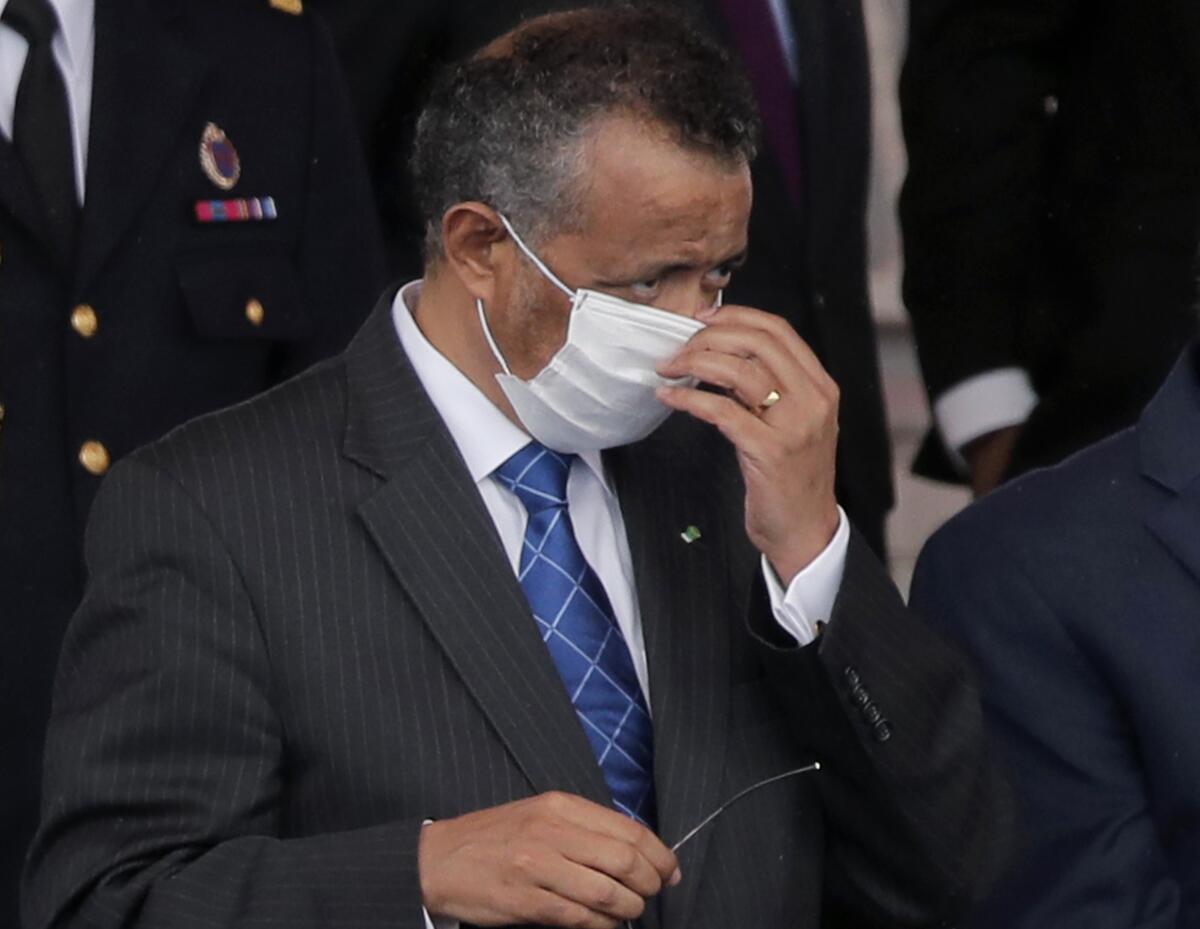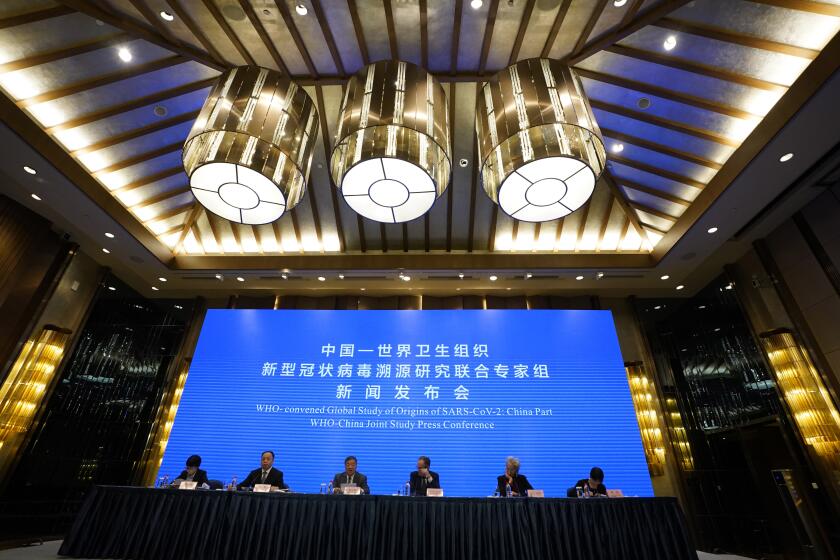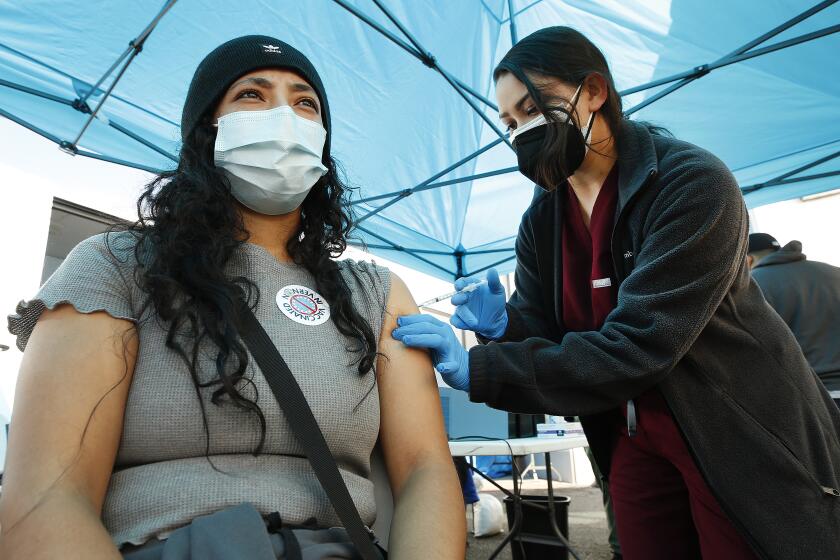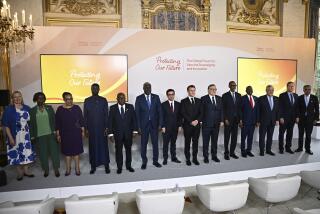World leaders call for international pandemic treaty but offer few details

- Share via
LONDON — More than 20 heads of government and global agencies called Tuesday for an international treaty on pandemic preparedness to protect future generations after the experience of the COVID-19 crisis.
But they offered few details as to how such an agreement would actually compel countries to act more cooperatively.
Tedros Adhanom Ghebreyesus, the head of the World Health Organization, and leaders including Prime Minister Boris Johnson of Britain, Prime Minister Mario Draghi of Italy and President Paul Kagame of Rwanda proposed “a renewed collective commitment” to reinforce preparedness and response systems by leveraging the WHO’s constitution.
“The world cannot afford to wait until the pandemic is over to start planning for the next one,” Tedros told reporters Tuesday. He said the treaty would provide “a framework for international cooperation and solidarity” and address issues such as surveillance systems and response to outbreaks.
International regulations governing health and implemented by the WHO already exist, but they can be disregarded by countries with few consequences. Despite an obligation for nations to share critical epidemiological data and materials quickly with the WHO, for example, China declined to do so when the coronavirus first broke out.
With no enforcement powers, WHO officials had little means of compelling Beijing to share details, an Associated Press investigation last year found.
A joint WHO-China study on the origins of the coronavirus says transmission from bats to humans through another animal was the most likely scenario.
Steven Solomon, the WHO’s principal legal officer, said the proposed pandemic treaty would need to be ratified by lawmakers in participating countries.
“Specifics about enforcement will be up to member states to decide on,” Solomon said.
European Union chief Charles Michel first laid out the idea of a pandemic treaty at the United Nations General Assembly in December. Joining Tedros at Tuesday’s news conference, Michel said the global community needed to “build a pandemic defense for future generations that extends far beyond today’s crisis. For this, we must translate the political will into concrete actions.”
Gian Luca Burci, a former WHO legal counsel who now teaches at the Graduate Institute of International and Development Studies in Geneva, said the proposal was an attempted “big fix” involving information-sharing, preparedness and response. He described the concept as “like a Christmas tree, frankly.”
“To me, the risk is that it diverts attention from the tool that we have,” he said recently, referring to the WHO’s existing International Health Regulations. He said his fear was that those regulations would get short shrift and receive “cosmetic improvements but fundamentally remain a weak instrument.”
California is days away from dramatically expanding who is eligible to receive a COVID-19 vaccine. But will there be enough doses to go around?
Although the 25 signatories of the call for a new treaty urged “solidarity” and greater “societal commitment,” there was no indication that any country would soon change its own approach to responding to the COVID-19 pandemic. China, Russia and the U.S. did not join in signing the statement.
Solomon said a pandemic treaty could also address issues such as the sharing of vaccine technology and supplies, but he gave no indication how that might happen. Despite the WHO’s calls for patents to be waived during the pandemic, rich countries have continued to oppose efforts by poor nations to compel them to share vaccine-manufacturing technology.
Tedros pleaded with rich countries last week to immediately donate 10 million COVID-19 vaccine doses so that immunization campaigns could start in all countries within the first 100 days of the year. Not a single country has yet publicly offered to share its vaccines immediately.
Of the more than 459 million vaccine doses administered globally, the majority have been in just 10 countries, and 28% were in just one, the WHO said, without identifying the countries.
More to Read
Sign up for Essential California
The most important California stories and recommendations in your inbox every morning.
You may occasionally receive promotional content from the Los Angeles Times.















